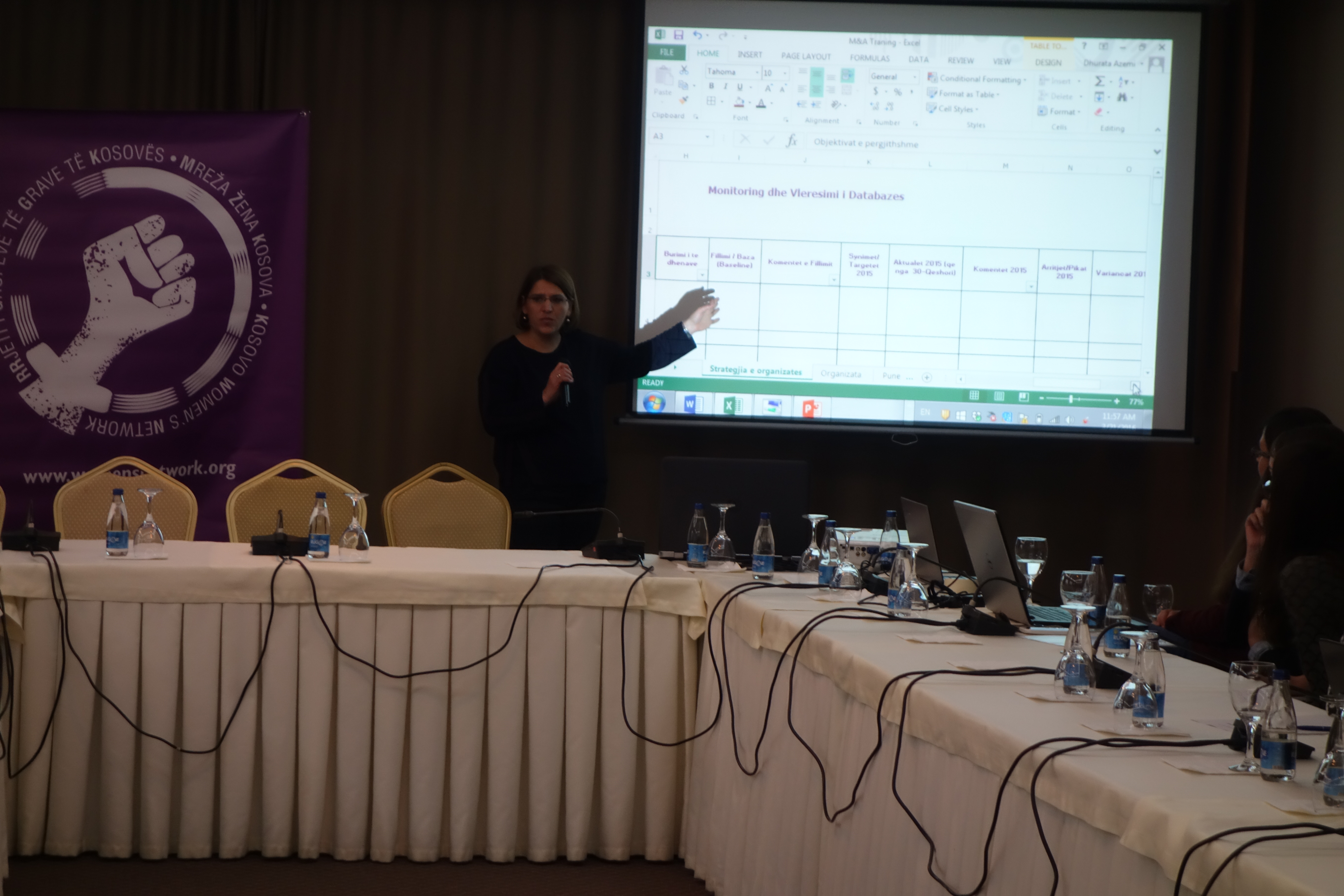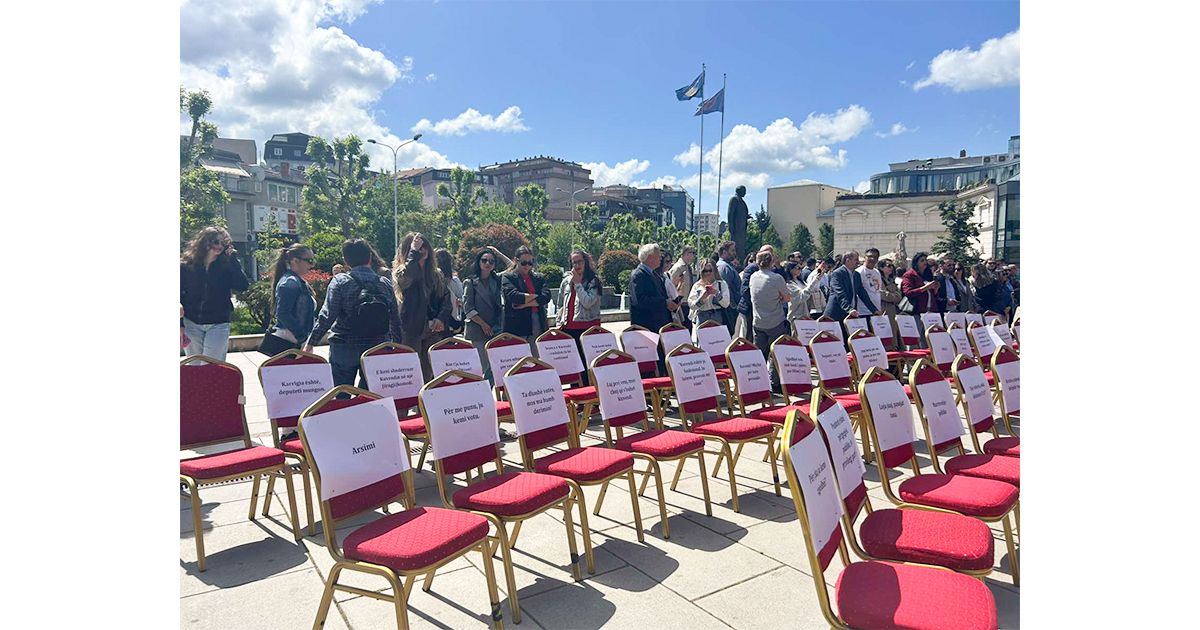On 21 of March, Kosovo Women’s Network (KWN) held a workshop on monitoring and evaluation. This workshop was organized after KWN received several requests from KWN members, who in a lot of cases, are required to have a plan of monitoring and evaluation, based on the Logical Framework.
This workshop aimed to inform members about what monitoring and evaluation entails and why is it important for every organization to create and maintain a monitoring and evaluation database. During the workshop, participants created these types of databases from scratch, adding fictional but applicable information to the tables.
Several members that were present thought that the topic of the workshop was very important and relevant, since it was the first time for them to learn about this database and put it into practice immediately.
“Our projects will be better prepared thanks to KWN workshops”, said one of the participants.
This workshop was supported by European Union Office in Kosovo.



